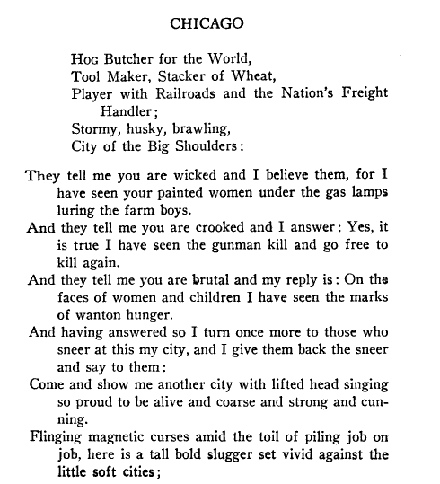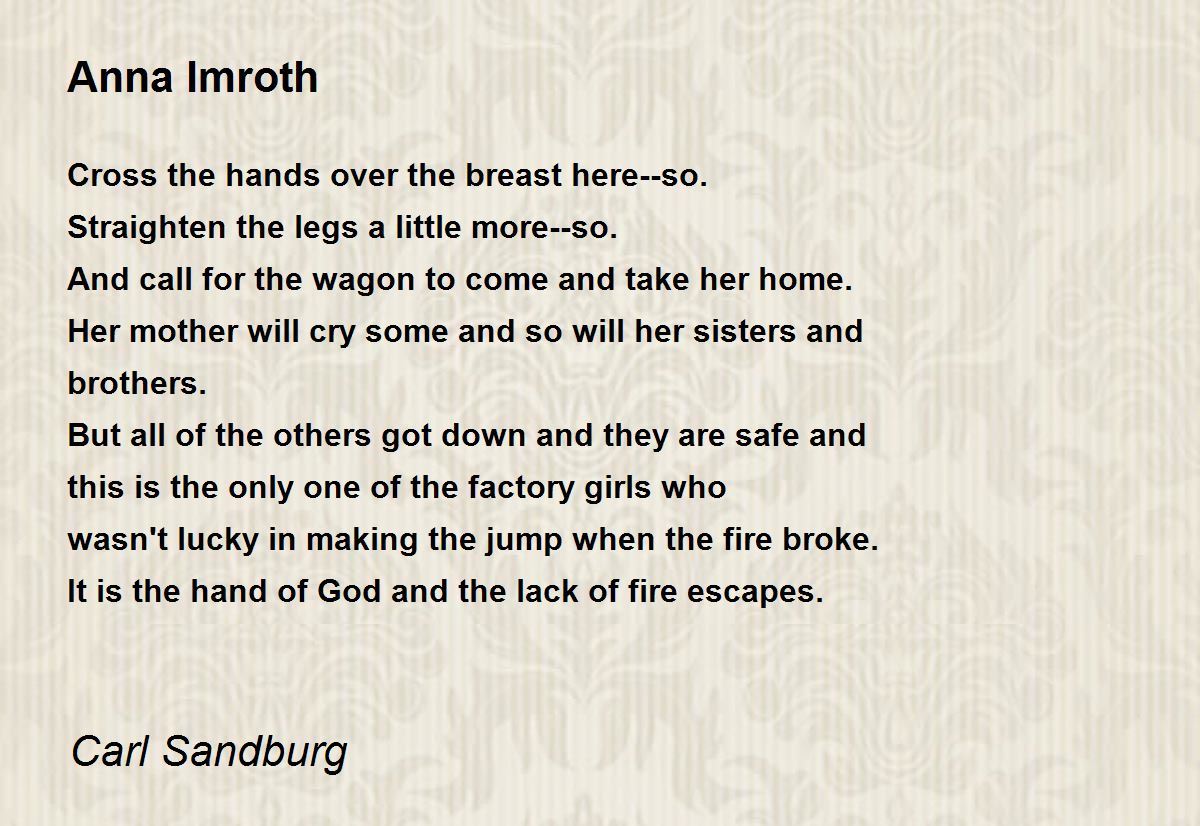
Chicago Poems (1916) was Carl Sandburg's first-published book of verse. Written in the poet's unique, personal idiom, these poems embody a soulfulness, lyric grace, and a love of and compassion for the common man that earned Sandburg a reputation as a "poet of the people." Among the dozens of poems in this collection are such well-known verses as "Chicago," "Fog," "To a Contemporary Bunkshooter," "Who Am I?" and "Under the Harvest Moon," as well as numerous others on themes of war, immigrant life, death, love, loneliness, and the beauty of nature. These early poems reveal the simplicity of style, honesty, and vision that characterized all of Sandburg's work and earned him enormous popularity in the 1920s and '30s and a Pulitzer prize in poetry in 1951.
★★★1/2
In the year 1916, Chicago Poems became Carl Sandburg's first published book of poetry. He went on to release three more volumes throughout the 1920s. In 1951, Sandburg was awarded the Pulitzer Prize for poetry for his Complete Poems edition (published in 1950).
Focusing on just Chicago Poems, right out of the gate the featured poem, "Chicago", hits the reader with imagery of a city's grit and grim existence... crime, violence, poems about prostitutes (more of those at the end of the book as well)... but then Sandburg flips around and combats that with a sense of pride:

Sandburg's word play brings a powerful, strong visual experience to his readers throughout this early portion of the work, as well as a perhaps surprising amount of nature references (many a nod to the sea or lives tied to the sea). In the later parts of the book there are several poems simply about him staring at bronze statues or other city memorials around Chicago. Periodically, he again references the criticisms others have made towards the city of Chicago:
Of my city, the worst that men will ever say is this:
You took little children away from the sun and the dew,And the glimmers that played in the grass under the great sky,And the reckless rain: you put them between great wallsTo work, broken and smothered, for bread and wages,To eat dust in their throats and die empty-heartedFor a little handful of pay on a few Saturday nights.
"They Will Say"
Yeah, it's not always the most uplifting stuff, but just when you think this collection is getting a little grim, Sandburg will sneak a thread of optimism in there to bind your interest to the rest of the collection, such as in the case of "Happiness":

So you see, the tone alternates. Sometimes we get a "hang in there" message of optimism, or something in the vein of "even in darkness there is light" ... other times, not gonna lie, it gets depressing as shit. In "Mag", we read of a man regretting his marriage, his vows leaving him feeling poor and tied down, "Chamfort" is a snapshot of a suicidal author; "Cripple" is a man uncomfortable with the sight of a crippled person, wishing he could just escape and be a sunflower in a garden bathed in golden light.
There's also a few in here that touch upon history, such as "Anna Imroth", a victim of a factory fire, and "Population Drifts", an immigrant story. We also get a few inspired by thoughts on Christ or Elvis Presley.

Though there are touches of grit and sadness in the early portions of this collection, the themes get noticeably darker in the second half (the war poems are inspired by painful imagery of World War 1) but again, in the very, very last bit, he flips back to a lighter tone.... even if the path to get there takes a melancholy, bittersweet detour to revisit moments of lost love. Though I understand it's unlikely that Sandburg wrote this collection back to back all in one go, when one READS it that way, there are moments when it's hard not to think, "Man, ol' Carl must have been in some kind of MOOD that day!"
He gets a little extra creative at times, at one point writing a poem from the POV of a copper wire. Not every poem is utterly amazing, but there are plenty here with truly breathtaking lines, one of my favorites being "My name is Truth and I am the most elusive captive in the universe" from "Who Am I?"
My one big knock for this collection would be that some of the language rings offensive, even culturally insensitive, to the modern reader. In some pieces, Sandburg's choice of wording is just flat out derogatory.
All in all, it's not something I personally would return to frequently, but there is something to the man's writing that I appreciate. It's undeniable he could turn a phrase when he was in the zone!

I'd be happy to delve into more of his stuff in the future as it comes across my path, even if it's not something I'm likely to actively seek out.

Comments
Post a Comment